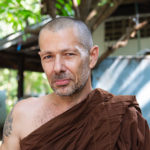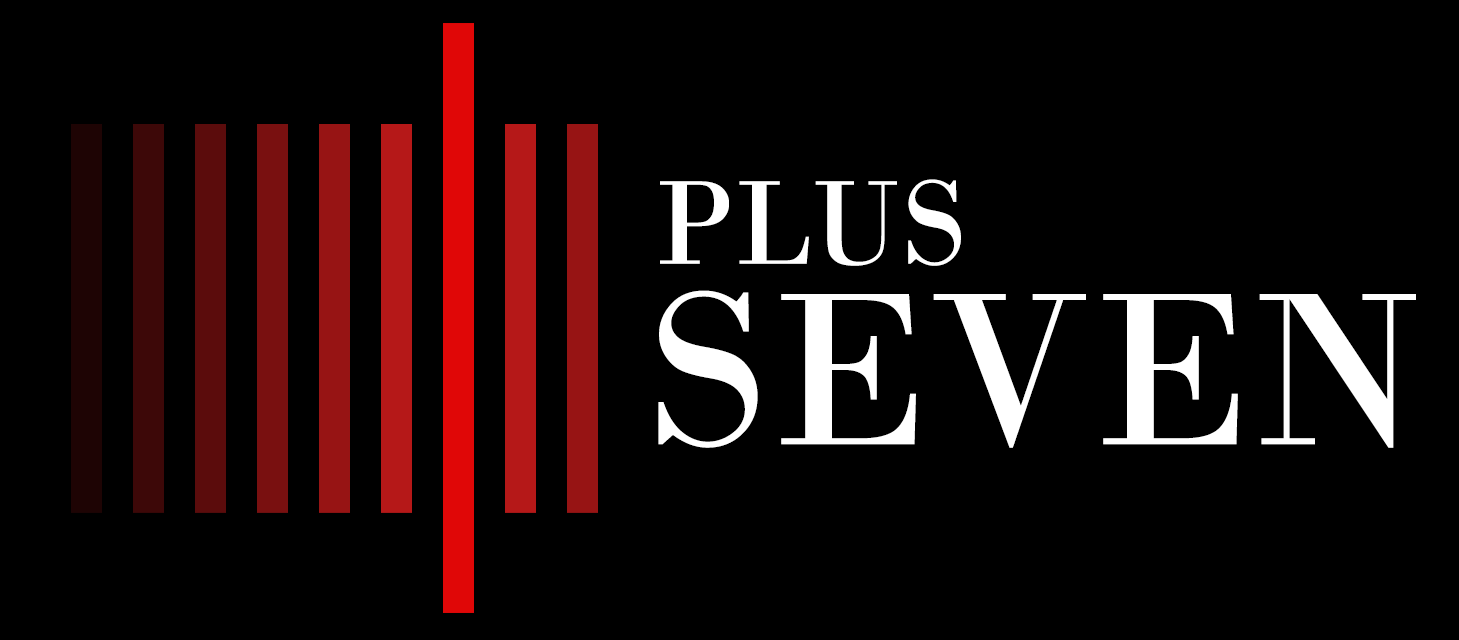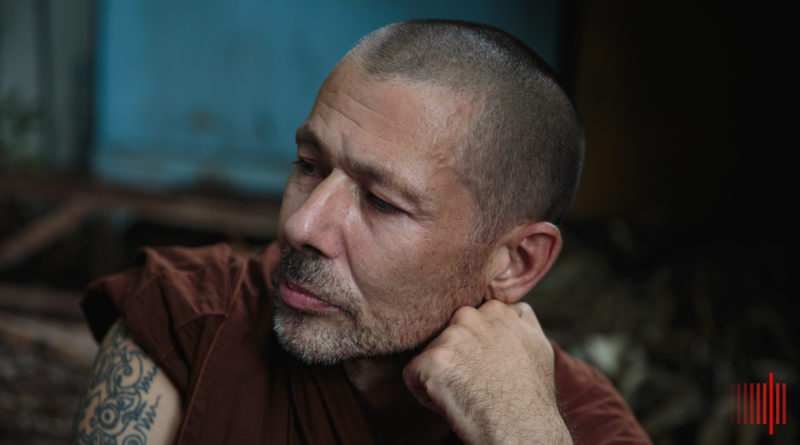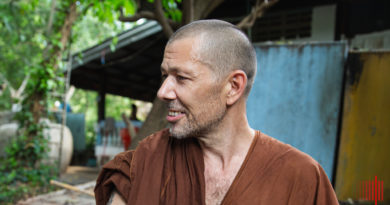Debunking Monking Part IV: the excruciating Jedi training
The last article dealt mainly with internal drama. Externally, what was happening was that I was now resident in a communal room with half-a-dozen assorted westerners, inside a walled compound containing around fifty detox patients overseen by eight or nine monks. This, in turn, was within the large sprawling monastery that is Thamkrabok, nestled at the foot of a range of small, but dramatically craggy, limestone mountains. Conditions were not luxurious, but wouldn’t seem shockingly spartan to anyone who has travelled Asia on a backpacker’s budget.
Phra Hans dropped in every day to liaise with the foreign patients, but on the whole, we were expected to muck in and mingle with the Thai contingent and do what they did. This worked pretty well, despite the language barrier, since the schedule was straightforward and consistent. There was a nice communal spirit amongst the Thai patients who cheerfully chivvied us through the day’s activities without any need for much complex explanation.
Fellowship of the Bling
I hadn’t paid much initial attention to my foreign cohorts, partly because I was a self-absorbed puddle of self-pity, and partly because they all seemed to be leaving. I arrived on the 21st December which meant that most westerners had timed their detox to spend the holiday period back with family and friends. That had struck me as a terrible idea, particularly New Year with my friends, and two other people had had a similar thought.
Reiner had arrived the day before me, and I really hadn’t noticed him at all at first, because he was asleep pretty well all of the time. He would wake up just long enough to eat enormous quantities of food and then go back to sleep. This was because he was a massive cokehead, coming down from the mother of all binges, so he had a large debt to repay in natural sources of energy and recuperation. Reiner was early-forties, German, and sported the hair of a man who was young in the 1980s and still young at heart. When he spoke, it was with the complacent delivery of a man who is right about most things, and presumes that as obvious to you as it is to him. A self-made businessman, he owned a company in Ibiza that had something to do with private swimming pools, and had the suntan that goes with that. There were paler highlights around his neck and fingers that were ghosts of the chunky bling jewellery he had been asked to remove before entering the detox.
Then there was Chris who arrived the following morning. Early-twenties, American, with the thin lank hair of a career smackhead, and the reedy voice of a man trying to retain all the smoke inside his lungs, even when he wasn’t smoking. He had grown up getting high, and to the point where that now actually was his normal voice. Chris had no education or employment history to speak of, was of corpse-like waxy complexion, and was perforated with several large and weepy-looking holes that were the ghosts of the chunky “tribal” jewellery he had been asked to remove before entering the detox.
I assumed that I would hate them both, although it struck me as faintly amusing that I (early thirties, establishment-class but of bohemian disposition, unbejeweled, but addicted to both of those drugs) might be perceived as the mean-average of the sum of those two. Predictably, we soon became quite a tight unit. First, Chris and I bonded over hating Reiner. This came very naturally as the two of us whiled away long insomniac nights to the sound of his contented snoring. But by Christmas Eve, when we were both in very bad shape, Reiner began to redeem himself. Having caught up somewhat on his sleep, he became energetically helpful and kind, keeping the place tidy, bringing us things, and just generally being chill and pleasant.
What really united us though (shared hardships, submerging outward differences in awareness of common humanity, yada, yada) was meditation, which we were introduced to in two quite contrasting ways, both equally excellent.
Sit down and shut up
Around midday all the patients trouped inside one of the buildings and sat down cross-legged in rows. Chris, Reiner, and I tagged along. Then an elderly and benevolent-looking monk spoke to us for a few minutes – in Thai, we understood not a word – and then everyone sat quietly with their eyes closed while one incense stick burned away. For about 25 minutes, I would guess. And – yeah, that’s it. It was very nice.
If you haven’t ever tried meditation, then I would urge you to stop reading at the end of this paragraph, and not resume until you have. Set a time, make it a minimum of 15 minutes, and whatever happens, decide that you won’t react. Certainly not with the body, and as little as possible with the mind. See what you think it’s about, and we’ll talk later..

Welcome back. In parallel to this though, we were also receiving instruction. Thamkrabok doesn’t force Buddhism on its patients, but if you are interested, you can ask, and we did. Phra Hans was very responsive to this and started swinging by in the late afternoons to give additional meditation instruction, but he still kept that very much on an experience-led tip. He would give us enough information to get going, then do it, and talk afterwards about what had happened, rather than a lot of theory about things that might happen. It went a little something like this:
It is easy to just say “don’t react”. We need some way of measuring this, so we will put our attention somewhere, and see how we do at keeping it there. The classic place to put it is on the sensation of breathing, which makes sense, because that’s one thing you just can’t stop doing. We are very used to not noticing that we are breathing though, so many people find it easier to accompany each in-breath and out-breath with a silent syllable. The classic ones to use here in Thailand are “Put-toh”. You can keep Put-toh-ing all the way through, or you can stop after a while if your mind seems to be resting happily on the breath. Every time something pops up that pulls your attention elsewhere, you just gently-but-firmly put it back there. And you keep on doing that, because there is likely to be a LOT.
Don’t get discouraged – many people when they first try this are dismayed at how unruly and trivial their minds seem to be. Mine resembled a bored eight year-old charging around a posh restaurant being a fighter-plane, and in much the same way, seemed to regard my mortified attempts to make him sit down and act civilised to be an encouragement to act up even more. Being stern needs to be backed up by some kind of credible threat, and what can you threaten your own mind with? So you just have to wait this out. Even absolute little savages do get tired eventually.
That should improve a little naturally after the first ten minutes. The body settles down in that time, so breathing and heart rate will slow and stabilise, which will help the mind to. There will still be interruptions, but keep returning to the breath/syllable. Again – it’s quite appropriate to think of these like you would a beloved but needy child, although hopefully a slightly calmer one by now. This one just keeps wanting to show you some dumb stickman picture it has drawn, so just kindly but firmly say that you’ll look at it later and return to what you are doing. Don’t shout, or they’ll cry. In a plainer speech, if your determination to remain focussed tips over into irritation, then that is more disturbing to concentration than the original disturbance. Get this balance right, and they’ll go and doodle happily in a corner for a while.
This is what we did every afternoon with Phra Hans, and every lunchtime with the rest of the patients, and we all agreed that it was.. nice. It was pleasant to have the mental chatter quieten down for a bit, and even when we felt that we had not in fact had a particularly well-focussed meditation, afterwards we would still feel.. kinduv nice for a while afterwards. I could see that this could deepen over time, if I kept it up, and be a useful mild de-stresser (I had of course just given up a quite powerful de-stresser).
The basic idea seemed not unfamiliar to me. I had grown up spending a lot of time practicing various musical instruments, and knew that there was a zone you can get into which is a pleasant place to be, as well as productive.
And yes – it kind of is that. Concentration is enjoyable and energising, we just maybe think it isn’t because usually when someone says “concentrate!” it’s when we’re not, because we don’t like what we’re doing. But then – why not concentrate on something useful, and pleasant in itself? Like playing an instrument, or reading a book, playing tennis, woodwork, or indeed anything at all? What’s the fuss about meditation? A good question. It requires a good answer. Okay, then here comes the Jedi stuff:
The Force Awakens
31st December 2002, Chris and I had been through the worst of it, and were rediscovering eating and sleeping. Although we were still quite ragged in many ways, our health and moods were noticeably improving. We were positively friendly towards Reiner by now, and the three of us were getting into the swing of daily life in the detox, with both the daily meditations definitely being a highlight, if not really a thrill. Phra Hans swung by as usual, but this time he suggested moving our meditation to the evening, and perhaps making it a bit special. I figured he was well aware that otherwise our minds might turn wistfully towards whatever else we might be doing if we hadn’t chosen to spend New Year’s Eve in a detox, which wouldn’t be helpful.
Evening arrived, and then the distant sounds of celebrations from the nearby village, and finally Phra Hans. He had arranged to take us out to one of the many caves around the monastery – the one where the original community of monks who founded Thamkrabok lived and practiced before there were any buildings here. The setting helped to create a sense of occasion, I suppose, but Hans’ really special treat though, was how long we were going to do it for. He didn’t announce what the timing would be, just that it would be longer than it would take for the stick to burn out, and so he would ting a little bell when it was over.
In the short meditations we had done up to that point, after the initial mental flurry had died away, I would typically get around 15 minutes of mildly peaceful interlude. Just as I would start to feel a bit fidgety again, we would be getting near the end of the time, and I would often get through the last few minutes with slightly gritted teeth. So I prepared to step up and get a little hardcore, and by Golly I was going to do this, perhaps assisted by a little testosterone-driven competitive spirit between our mismatched trio. I saw that Hans was lighting the longer sticks, so I figured he’d go for what? 45 minutes? That would be nearly double what we were used to, and would certainly drive me into the grit zone. An hour? Bring it. I was ready.
Two hours. That’s how long it was before Phra Hans Olo did his little ting. And I made it, all three of us did. But this isn’t a story about how tough I am (I have other stories for that – another time, perhaps). It is about the truly extraordinary thing that Phra Hans graciously showed us, which retrospectively made all of this other stuff I have been talking about fall into place, and awakened a huge curiosity in me to learn more.
What happens then?
The Temper Empire Strikes Back
The first part of the meditation was, as usual, a natural settling down into a calmer state, and then some focus establishing on the breath pulling that a little deeper, making the outside sounds a little more distant, and the urge to scratch my nose a little less pressing. All good so far.
And then this stiller state began to be less interested in stray thoughts, which in turn got a bit less frequent, and began to feel a bit happier about just being here and doing this. And that went on for a while.
And then, that started to roll back in reverse order, only now, it wasn’t just about scratching an itch, since a little discomfort was starting to appear in my legs, and then there were half a dozen itches that needed scratching, and now my lower back was unhappy too. So I just let all my body parts complain at me, and distracted myself with thoughts of the nice things I might do when this was over, such as stretch my legs out, smoke a cigarette, perhaps a warm beverage later, reading a bit more of my book (The Subtle Knife, by Philip Pullman – quick gratuitous plug, because it’s awesome).
I was shortly to begin discovering how subjective physical hardship is. The pain was probably relatively mild, but my inner brat was making a huge fuss about it simply because he thought someone was listening, and might do something about it. He had behaved himself for as long as he thought reasonable and was now tugging at my sleeve demanding to play Angry Birds on my phone, and threatening a tantrum if I didn’t capitulate. And on top of the original grievance, he was now getting increasingly cross about being ignored.
It began to dawn on me that Phra Hans might not be mere seconds away from that precious little ting that would end this– “how long was he planning to keep this going? You bastard!! Don’t you know that we’re vulnerable, fragile people?” My mind briefly enjoyed discharging some bile at Hans, which gave me another minute or so, but I was soon back to approaching breaking point. I wasn’t going to be the first to crack though, and I could hear a bit of restlessness going on from the others, a few held breaths and tiny fidgets. “Crack, you bastards, crack! So that I can, but not be first! Chris, you snivelling weakling, how dare you be tougher than me? Reiner, you smug, pampered moron!” Yeah – charming stuff.
My ugly thoughts melted into one wordless (silent) snarl of rage, with no particular object. I didn’t actually hate anyone, I just hated. That seemed pretty stupid, so I tried to stop snarling, but then all the pain came back, and stronger than before. I couldn’t take much more of this, but I could stand a little longer – one more breath. And one more. I’ll go for ten more breaths and then maybe stop. Ten more, and then verbalised thinking stopped, and I was just getting through one moment at a time.
What had happened, was that the painful sensations were still there, but somehow no longer seemed like my personal tragedy. Because of that I could get back to staying on the breath, and with much the same rather nonchalant mood as before. It didn’t feel like some higher altered state, but I felt as though I could keep this up indefinitely. I could still feel pain in my legs, but it was something like hearing a car alarm go off in the street. At first you freak out because it might be your car, and then you realise it isn’t, so it goes down to a much lower priority.
Stranger still was that in some way the feelings of boredom, impatience, and self-pity, hadn’t exactly just gone away, either. Now they were a bit like – well, have you ever seen a child get very upset over something they’ve misunderstood? For example, “We have to go home in an hour” but they start crying after the word “home…” and then you clear up the misunderstanding, but they still carry on being upset? Or rather, doing upset, perhaps. It becomes apparent that upsetness is a force unto itself, but also that there’s an element of choice. And it looks ridiculous, even amusing. And, as with a whining outer child – once you get them to laugh, you’ve got them. There is no going back to pretending that their sense of grievance is an epoch-defining injustice.
So that’s pretty cool, but it gets better. This wasn’t just a matter of finding a few more resources and a more cheerful attitude and being able to keep going a bit longer. All of this happened inside the first hour. There was another one to go, and in that time the physical discomfort and mental agitation really did become something that, in slightly different circumstances, Amnesty International might be interested to hear about (Seriously – saying nothing to people and not allowing them to move can be a highly effective form of torture). The sense of ease and detachment remained steady.
My understanding of the meaning of concentration turned upside down. It wasn’t a stone I had to keep grinding away on, it was more like a comfortable armchair which I could simply remain on, simply by continuing to watch this simple, ever-present thing – my breath.
This revelation came via a Jedi trick. All three of us, very different people, reported a similar experience. Each of us admitted to being at the very edge of what we thought was our endurance, and poised to quit the instant there was a hint that someone else would. And then just crashing through that wall, and then feeling calm, and invincible. This state is completely available, simply by returning to the object of concentration even as you feel the greatest pull away from it. Once you know it is there, going there again seems far less intimidating.
Again, what makes this possible is Sajja. Only if you are resolved to sit through whatever comes, might whatever assails you give up. If you keep just doing those short meditations, going a little way into the rough zone and always retiring feeling like you’re at the end of your tether, when ordinary concentration has done all that it can do, then you’ll never see what comes next. And you’ll never see how you ever could, because you will imagine that it just keeps on getting worse, but it doesn’t. I actually don’t think it can –I think there is a magical power released by walking through walls. When you “know” that you can’t, but you do, and you can, well obviously you will find yourself in an unknown land, with unsuspected paths leading on to further places, that wouldn’t be visible, or even imaginable from where you started.
SILLIESES!
So, okay – just to have a brief, cynical Gollum-moment – so we can get ourselves into a weird state where we think that everything is okay while that lasts. What does that have to do with real life?
Whatever you are doing, or think you are doing, there is a constant flow of other things arising. Things arise from the outside – your neighbour starts playing his radio and you either like or dislike the song, or maybe you just dislike it on principle because you dislike the neighbour. There is a third process as well, which in the radio analogy is when you neither like nor dislike the song particularly, but somehow it gets stuck in your consciousness, perhaps some snatch of lyrics or melody that keeps replaying after the song has finished, or trying to remember the name of the singer.
But these are all our reactions to outer things. When you can calm the mind enough to be less interested in what is outside, you start to see that these forces seem to still be around, arising from within and looking for objects to latch onto. That can be initially terrifying, because then they seem far less rational, more like demons. But when you have seen that, perhaps you can see you don’t have to latch onto them. And then maybe you don’t have to be controlled by them.
These are what Buddha called “Lobha, Dhosa, and Moha” – Craving, Hatred, and Delusion; Left, Right, and Rabbit-hole. According to him, these are what you spend most of your time and energy on doing, whenever you’re not mindfully doing something else, or in a state of concentration. These are your charming brood – one is demanding ice cream, another is wailing for your urgent intervention in some trivial schoolyard injustice, and the third just prattles endlessly about Pokemon cards. Lovely, aren’t they? You must be sooooooooo proud.
With the kind of meditation described above, which is called “Samatha”, we discover a way to put the kids to bed, to recover some sanity and stability, and not have every moment be dominated by their petulant demands. That is wonderful, but you can’t just keep making children go away, or while you’re enjoying your “me time” they’ll soon be setting fire to things and torturing the cat, and then they’ll grow up to be serial killers. We also need to civilise them, and help them to grow up, and hopefully, eventually to move out, and that is something that the other kind of meditation, called “Vipassana”, combined with a little bit of (real, not rubbish) philosophy, can do.
About the author

Phra Peter Suparo
History geek. Enjoys sitting around doing as little as possible. Semi-retired bon viveur. Eternal student. Elf-friend. Theoretically in favour of humanity.






